Science, land rights, and livelihoods
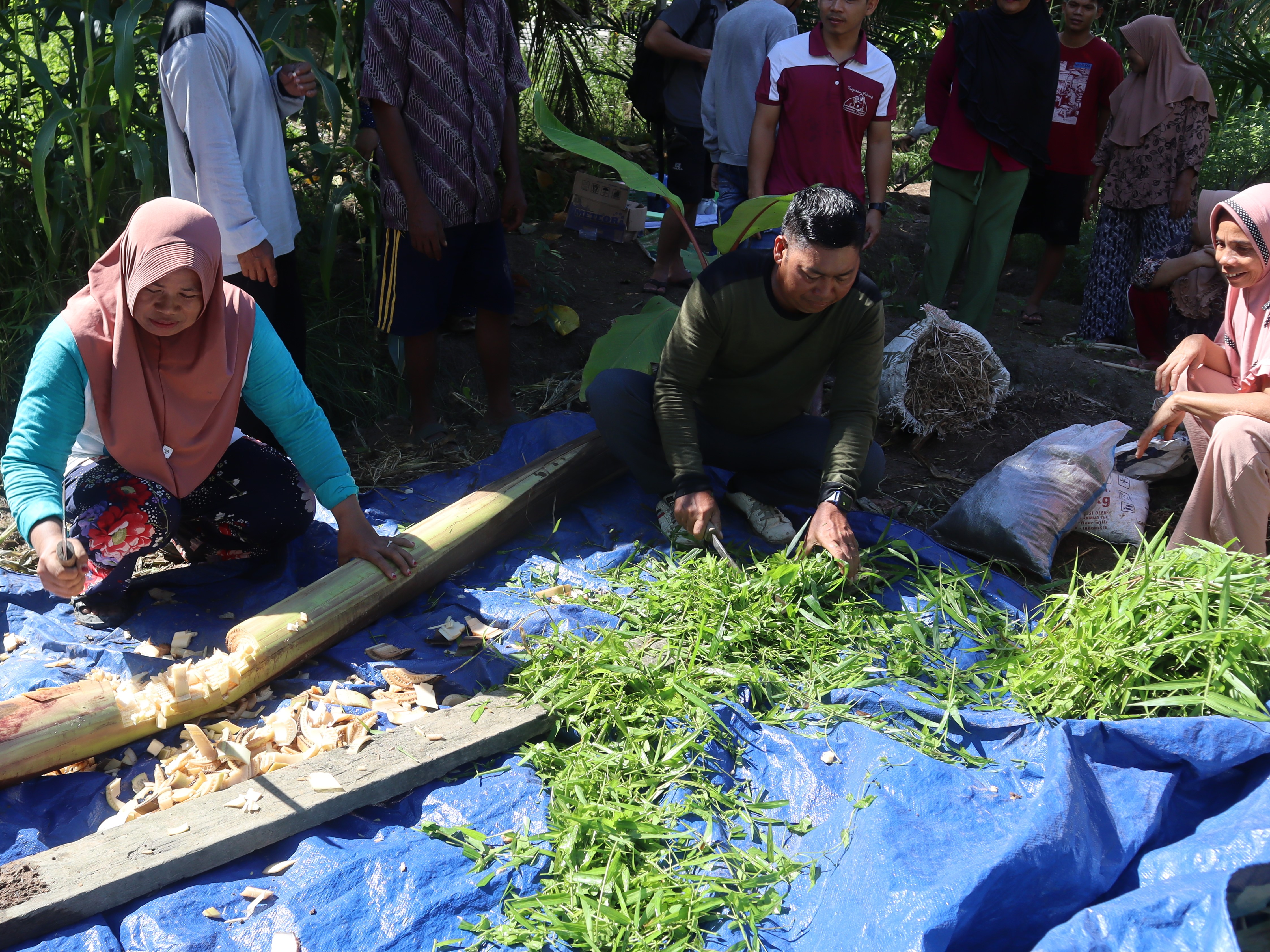
Preparing organic fertilizer. Credit - Robi Kasianus, Gunung Palung Orangutan Conservation Program.
Community-based efforts to protect orangutans and their habitat
The Indonesian government, through the Ministry of Forestry, has developed a Social Forestry program that grants communities living around forests the legal right to manage them. One of the five schemes within this programme is the Village Forest (Hutan Desa). Village Forest Management Institutions (also known as LPHDs) apply to the Ministry of Forestry for management rights, and once approved, they receive a 35-year license, with evaluations every five years to determine whether the license will be extended.
In West Kalimantan, many communities are eager to participate in the Village Forest initiative but may face barriers such as limited access to legal guidance, technical expertise, or start-up resources. Gunung Palung Orangutan Conservation Program (GPOCP, known locally as Yayasan Palung) works in partnership with these communities to help them navigate the programme, secure their rights, and build strong, independent systems of forest management.
GPOCP assists with the management of nine Village Forests in Simpang Hilir District, Kayong Utara Regency, West Kalimantan, Indonesia. These forests include Rantau Panjang, Penjalaan, Nipah Kuning, Pemangkat, Pulau Kumbang, Padu Banjar, Lubuk Batu, and Batu Barat — together covering 11,103 ha. In addition, two more proposed Village Forests, totalling 4,973.5 ha, are currently undergoing verification by the Indonesian government. By facilitating the verification process and building local capacity, we help local communities build sustainable enterprises that protect the forest while also enhancing human wellbeing.
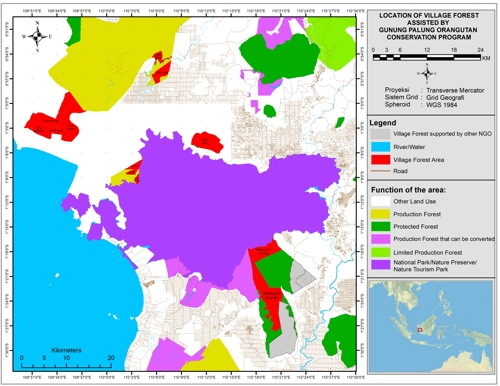 A map of the Village Forests that GPOCP supports in relation to Gunung Palung National Park. Credit - Robi Kasianus, GPOCP.
A map of the Village Forests that GPOCP supports in relation to Gunung Palung National Park. Credit - Robi Kasianus, GPOCP.GPOCP’s role in supporting Village Forests
As a mentoring institution, GPOCP plays a central role in strengthening LPHDs both within and around Village Forests. Our work includes:
- Professional and skills development for LPHDs and Community Business Groups through training, internships, workshops, and study exchanges.
- Institutional strengthening by helping to draft organisational statutes and bylaws, developing Standard Operating Procedures, improving facilities, assisting Community Business Groups in securing business permits and household industry licenses, and preparing both 10-year Social Forestry Work Plans and annual work plans.
- Forest protection and management consisting of forest patrols, biodiversity surveys, thermal drone monitoring, passive monitoring (camera traps, bioacoustics recorders, temperature monitors and rain gauges), biodiversity surveys, integrated patrols, fire prevention, and forest rehabilitation.
- Business development and product marketing for Community Business Groups through promoting non-timber forest products, organic farming, animal husbandry, honey cultivation, food processing, marketing, and monitoring of income and progress.
The role of local communities
Local communities are essential to the success of Village Forest management. One of the greatest challenges to orangutan conservation is human-driven threats. LPHDs are therefore responsible for protecting their forests against illegal activities and fire. For this reason, monthly forest patrols are included in LPHDs’ annual work plans.
Each month, patrols are carried out for seven days, with the goal of preventing illegal logging, hunting, land encroachment, and fires. To date, eight patrol teams have been trained by GPOCP. Each team consists of four to five local community members. Their main task is to record evidence of illegal activities, but they also collect data on wildlife sightings, tracks, and plant species. Since 2022, patrol teams have used the SMART (Spatial Monitoring and Reporting Tool) app, which allows them to record waypoints, dates, times, photos, and patrol routes.
Because LPHD patrol teams do not have the authority to arrest offenders, collaboration with law enforcement authorities – including the military, police, forest rangers, and the Forest Management Unit – is essential. This collaboration takes the form of Integrated Law Enforcement Patrols.
Analysis of LPHD patrol data collected between April 2022 and December 2024 shows a significant decrease in destructive activities (illegal logging, hunting, and land encroachment) following the implementation of Integrated Law Enforcement Patrols.


Working with former illegal loggers
Integrated patrols not only stop illegal activities but also provide opportunities for mediation and rehabilitation. So far, no offenders have been imprisoned. For example, in 2023, three men were apprehended for illegal logging in the Penjalaan Village Forest. Considering their livelihood needs and skills, they were not jailed but instead signed an agreement promising not to repeat the offence.
GPOCP and LPHDs then worked with these men to redirect their efforts toward sustainable livelihoods. All three expressed that farming was their only viable skill, so they were integrated into community business groups focused on organic agriculture. Before starting, they received training in non-burning land preparation, organic fertiliser production, and sustainable cultivation methods.
One member, Mr. Suparjan, shared: “Through the training we received, we learned how to prepare land, select seeds, plant, control pests, and even produce our own organic fertiliser.”
Today, these organic agriculture groups are harvesting crops such as chilli peppers, sweet corn, eggplant, and cucumber. These are used for family consumption and sold in local markets. Although market prices for horticultural crops are unstable, organic farming provides food security while generating supplemental income.
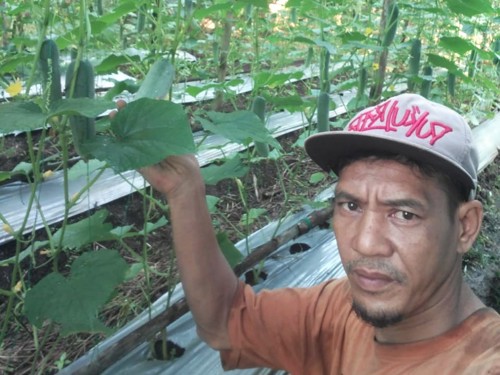
Ongoing challenges
Conservation in West Kalimantan is not easy. Oil palm cultivation poses a major challenge, as stable prices and reliable markets make it attractive to farmers. Many choose to plant oil palm because it offers higher, predictable returns. As land availability decreases, there is growing risk that protected areas such as Village Forests will become the next targets for illegal conversion to oil palm plantations. The urgent challenge is to develop alternative livelihoods that can match the income potential of oil palm.
Protecting orangutans and their habitat requires multi-stakeholder collaboration. Involving local communities in Village Forest management has proven to be an effective way to strengthen the value and protection of these forests. But for long-term success, sustainable funding and strong law enforcement are also essential.
Written by Hendri Gunawan and Robi Kasianus. For more information on this Darwin Initiative Main project 31-015 led by Gunung Palung Orangutan Conservation Program, please click here.

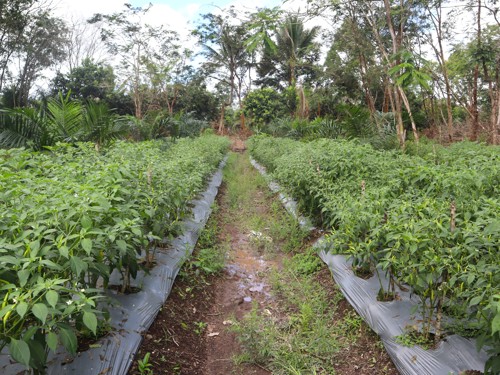

 Back
Back